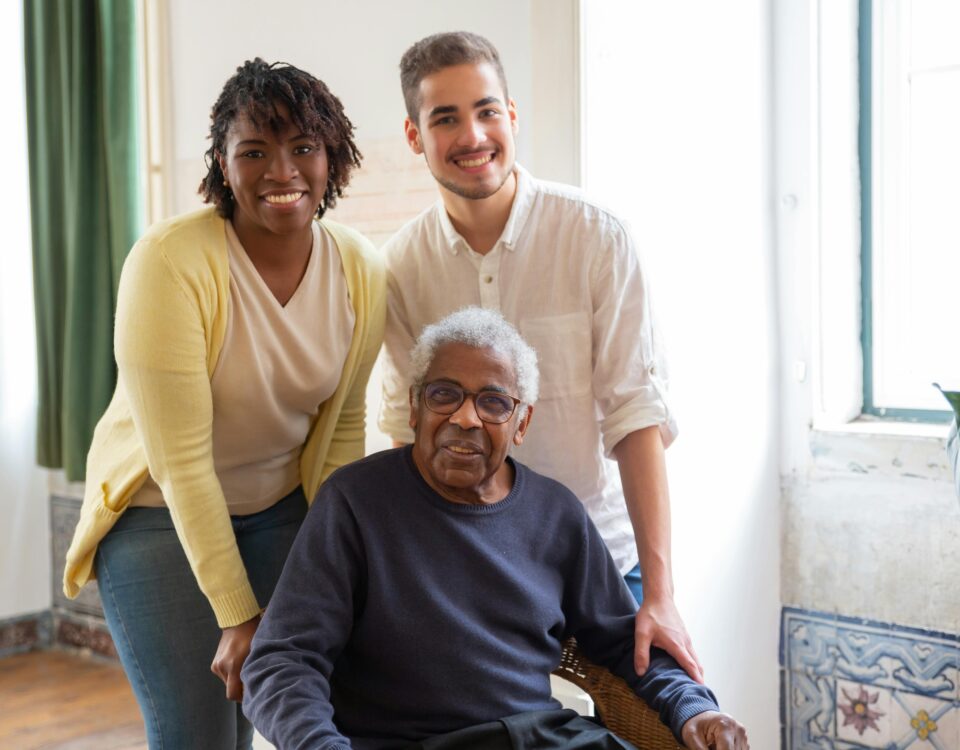You can’t always be there. But we can.
Becoming a Caregiver to Someone with Dementia

What Kinds of Emotional Reactions Might Your Senior Loved One Have After a Heart Attack?
July 24, 2017
Check for These Safety Risks in Your Parent’s Home
August 7, 2017Becoming a Caregiver to Someone with Dementia
When a parent is diagnosed with dementia, their adult children are often called into caregiving duty. Becoming a caregiver for the first time can be frightening. There’s a lot of worry surrounding the future, whether you’re up for the job, and how you’ll manage to continue working, spend time with your spouse and children, and still have time for yourself.

Caregiver Northridge CA – Becoming a Caregiver to Someone with Dementia .
As you start on the journey of a dementia caregiver, here are some things to consider about being a dementia caregiver.
#1 Think About Whether You’re the Right Person for the Job
Of course you want your parent to have the best care and, because you love them, you’re willing to make sacrifices for their care. However, before you jump into caregiving with both feet, take some time to think about whether you really want to be a caregiver. Sometimes people feel pressured into being caregivers because they happen to live closest to the parent or because they feel like it’s something they are obligated to do.
Becoming a caregiver is a personal decision and there is no shame in admitting to yourself and others that you might not be up for the job or that you simply don’t have as much time to devote to being a caregiver as your parent might need. It’s okay to ask for help from family and friends or to hire a home care provider through an agency to care for your parent. You can still be of great help by simply coordinating care or spending time with your parent as you always have.
#2 Plan for Progression Early
Dementia is progressive, which means that your parent’s symptoms are going to become worse as time goes on. While your parent is in the early stages of dementia, talk with other family members and with your parent to make plans for the future. Discuss where your parent will live and who will be responsible for taking care of them. Though it’s a difficult conversation to have, it’s also a good idea to talk to your parent about their final wishes and funeral planning.
#3 Learn About Support Systems
There are lots of organizations that offer help to people with dementia and their caregivers. Talk to your parent’s doctor and social worker about where you can turn for help. Find out about local chapters of the Alzheimer’s Association where you can attend caregiver workshops and obtain useful resources. Also, contact the local senior center and find out about services they offer.
#4 Plan to Take Care of Yourself
It’s easy to let your own health and well-being fall by the wayside when you’re busy caring for someone else. Plan to take care of yourself by eating healthy, making time to exercise, and finding ways to relax. Getting time for yourself will mean that you have to ask others for help. Talk to family members and friends about spending time with your parent so that you can take time to exercise, go to health appointments, and spend time doing things you enjoy. When you take care of yourself, you’ll feel better and be happier, and that will make you a better caregiver for your parent.
Sources: https://www.alzheimers.net/caring-for-someone-with-dementia/
https://www.unforgettable.org/blog/i-care-for-someone-with-dementia-what-now/
https://www.webmd.com/palliative-care/caring-for-a-person-with-dementia#1

